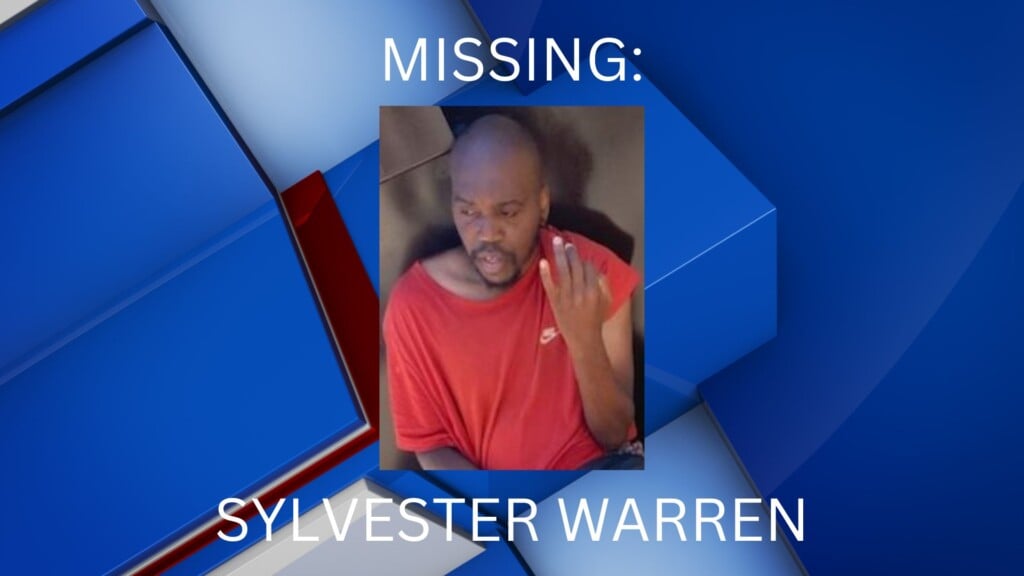Reeves Releases Legislative Agenda
JACKSON (Reeves Press release) – Lt. Gov. Tate Reeves today released a legislative plan to reform state contracting laws, increase government transparency, effectively spend classroom dollars and improve medical care.
“We’ve gotten our fiscal house in order by balancing the budget, saving for a rainy day and ending the long-time shell game of spending one-time money on recurring expenses over the past three years,” Lt. Gov. Reeves said. “However, I believe we’re not finished weeding out wasteful spending and streamlining government programs.”
Lt. Gov. Reeves agenda includes reforms to the state’s contracting laws to make it harder for individuals to defraud taxpayers and easier for Mississippians to see who has state contracts.
The full agenda is attached. Highlights include:
· Eliminating the vehicle inspection sticker.
· Placing public hospital boards under the Open Meetings Act.
· Reforming state contracting laws.
· Expanding physician residency access.
· Improving care for the mentally ill.
· Ensuring high academic standards for Mississippi students.
· Spending more on education based on effective district management.
· Providing school choice for special needs children.
· Reducing concealed carry permit fees.
· Recognizing military training for firearm permits.
Three years ago, Mississippi’s budget relied on $460 million in non-recurring revenues. Relying on one-time money created a shortfall that had to be covered each year through patchwork appropriations, jeopardizing funding stability for critical agencies and programs.
Since then, the Legislature made it a priority to stop this irresponsible budget gimmick in order to get Mississippi’s fiscal house in order. Today, Mississippi has a balanced budget, spending only recurring revenues for recurring expenses.
Conservative budgeting practices also enabled the Legislature to close funding gaps; significantly increase funding for priorities like education, public safety, and healthcare; and fill the state’s Rainy Day Fund to its statutory limit.
But sound financial stewardship isn’t limited to spending; we must also keep a watchful eye on the state’s debt. When I was elected Lieutenant Governor, I made a commitment to voters to stop the state from swiping its credit card at every turn.
I have successfully fought to block excessive bonds and reduce the overall debt burden on Mississippians. In three years, we’ve paid more than $1 billion in debt payments. By trimming debt and lowering those payments, we can redirect those funds to classrooms.
Mississippi’s economy has gradually recovered from the effects of the Great Recession, and priority budgets reflect these improvements.
The Legislature has been able to invest $250 million in education at all levels over the past three years while keeping other services funded at steady levels – an accomplishment made possible by reining in unnecessary spending and ending our reliance on one-time money.
These policies have put Mississippi on solid financial footing, paving the way for legislators to invest in outcome-based programs and provide much-needed taxpayer relief. For the first six months of the fiscal year, revenue was nearly $100 million above expectations, which means we have an opportunity to return tax dollars back to the people.
In the last three years, two out of every three state employees received a pay increase. This includes judges, attorneys, sheriffs, teachers and most state workers. Now is the time for taxpayers to get a pay raise, too. In the coming weeks, I look forward to announcing plans to provide broad-based tax relief for working Mississippians.
As a conservative, I believe government shouldn’t be in the business of picking winners and losers, and I intend to announce a tax plan that reaches all Mississippians.
As a conservative, I believe the tax code should be simple. My plan will be one that encourages capital investment in our state and promotes long-term economic growth.
In addition to taxes, policymakers must take a good look at the fees and fines Mississippians pay and determine whether that money is put to good use.
For example, the $5 fee for a vehicle inspection sticker is not effective for our state anymore. Many states are eliminating the inspection sticker as vehicles are manufactured with improved safety features. Now is the time to ditch the sticker and deploy those troopers inspecting the inspecting stations to the road to protect the public.
Recent events have highlighted the need for the Legislature to redesign the methods by which the state executes contracts. While changes in law cannot completely prevent bad actors from defrauding taxpayers, changes can be made to tighten controls and bring more transparency to the process.
I believe there is a fundamental problem in the statutory makeup of the Personal Services Contract Review Board. This board is made up of the executive directors of state agencies but does not reflect non-government, private sector membership.
Unfortunately, this practice can lead to the proverbial fox watching the henhouse, since only agencies of government stand to benefit from contract approvals. While I have great respect for agency directors, we must avoid conflicts of interest by appointing private sector members to this board.
In addition to revising the PSCRB membership, we must also ensure greater legislative oversight in the procurement process. I recommend the PSCRB provide copies of the minutes of their meetings to the chairmen of the Accountability, Efficiency, and Transparency Committees; provide copies of any proposals related to personal and professional services contract policies to these committees at least 15 days before voting on such proposals; and provide quarterly reports on all sole source contracts executed by state agencies.
Most importantly, I believe government contracts should be easy to find and searchable on the Transparency Mississippi website. Taxpayers should be able to see vendors and subcontractors who are performing work for the public benefit.
That is why I was proud to support legislation in the 2014 session to implement the disclosure and transparency recommendations of the PEER committee report “Contracting with State Agencies.” However, we will continue identifying ways in which to further strengthen the transparency website.
We must remember that procurement reform is only effective if it includes shining a light on agency appropriations. Fiscal transparency can provide greater oversight into how agencies collect and spend money. I believe we should implement three simple yet transformative appropriations reforms.
First, let’s discontinue the archaic practice of giving agencies a blank check to spend money outside their normal appropriations. While this “escalation authority” provides flexibility to agencies, which manage large amounts of federal funds, it is not necessary to include in most agency appropriations and leads to mischief.
Secondly, we can no longer turn a blind eye to the fact agencies, boards, commissions, and other entities of government collect myriad fees, fines, and assessments. I believe we should require all agencies to disclose their funding sources by providing a list of all fees, fines, and taxes they assess or collect, explain the basis for those collections and the statutes that allow them to levy such fines and fees. Recent events have shown that agencies have kept funding sources outside state coffers, and we must identify and eliminate such practices.
Finally, I believe we should get a handle on the practice of state employees “retiring” from government work yet keeping their job under the guise of a “contract worker.” In this scenario, workers are receiving both a paycheck from the state and monthly retirement benefits. This year, I will join Appropriations Chairman Senator Buck Clarke in pushing for greater oversight of these types of workers. We will propose prohibiting agencies from paying contract workers unless those workers meet the federal definitions for independent contractor set forth by the Internal Revenue Service.
I also believe recent events on the Gulf Coast show more transparency is needed at public hospitals. The boards of public hospitals, which are supported by taxpayer dollars, should operate in the sunlight so employees, patients and taxpayers know the level of medical care and fiscal management are operating effectively. That is why I support open meetings for public hospital boards.
The State of Mississippi has made a significant investment into the construction of a new medical school building on the campus of the University of Mississippi Medical Center’s campus.
This new school will allow UMMC to train future generations of Mississippians in one of the most advanced settings, as well as increase the number of physicians that graduate each year from both of the state’s medical schools.
The next step in that investment is creating more residency programs across the state to allow these graduates to train while serving the health needs of all Mississippians.
I am proposing the allocation of $4 million to create new residency slots at UMMC, as well as seed funding for residency programs in rural areas of the state. This allocation will allow more medical training to take place in Mississippi, therefore putting more practitioners in the state.
Furthermore, research has shown that physicians are more apt to practice in the geographic area they conduct their residency in upon completion.
This will put more doctors in Mississippi, which is one solution to the challenge of providing good health care in every county.
Mississippi spends almost $600 million in state and federal funds caring for mentally ill patients. According to the Mississippi Medical Association, our state spends more on mental health care than any other state per capita.
In addition, the overburdened mental health system is plagued by legal disputes and settlements, costing taxpayers $26 million in the past two years alone.
That number does not include the millions spent by counties when mentally ill individuals end up in local jails.
I am calling for a Blue-Ribbon Commission to fund meaningful solutions to transform care for the mentally ill in Mississippi.
Talking to physicians, counselors, law enforcement and many others, the delivery of mental health care is a challenge in all parts of Mississippi.
I will call for the Board of Mental Health, Community Mental Health Centers, physician and nurses groups, judiciary, law enforcement, and other interested parties to come together to provide a blueprint for an effective and efficient delivery system.
This is about serving some of the most vulnerable Mississippians while ensuring we have the most advanced and efficient system to serve them with.
As policymakers, the Legislature is ultimately responsible for ensuring Mississippi schoolchildren are learning at the highest level possible.
For too long, the system has placed low expectations on students. I believe if we set the bar high enough, Mississippi schoolchildren will sail over it.
However, it is imperative that Mississippi retain control of its academic standards and implementation not administrators in Washington D.C.
That is why I support ending Common Core and establishing a task force comprised of educators, parents and subject matter experts to evaluate and create the highest level of standards in the nation for Mississippi.
Funding for education at all levels has grown $250 million over the past three years. The Legislature has focused on increasing education budgets while other agencies saw either reductions or no changes in funding.
This year, I anticipate schools receiving even more state tax dollars as the budget is finalized in March. However, we have a duty to ensure those dollars are spent effectively.
The current school funding formula has been in place for almost 20 years and – like any government program – should be not be immune from review.
The goal of any education funding formula should be to ensure funding equity while simultaneously (and more importantly) making targeted investments in what makes the most difference for students.
Currently, school funding is based on the spending habits of C-level, or average, districts. If we want our students to complete nationally and internationally, we must admit that C-rated school districts are not a strong benchmark. Instead, base-student cost must be calculated using A- and B-rated district per-pupil expenditures.
Also, the formula is flawed in the way we calculate district funding using student attendance. I support using quarterly enrollment to accurately measure how many students each district is serving.
After years of talking about school district consolidation, the Legislature is finally acting on it. In three years, the number of school districts has been reduced to 145 from 152. There are far too many school districts spending too much on central office support staff that does not positively affect the classroom or student achievement. This year, I support consolidating districts in Durant and Holmes County and continue to look at other areas where savings can be found to place more money into the classroom.
I have a fundamental belief that every child deserves an opportunity at success no matter what their parents do for a living or their zip code.
That is why I am a strong proponent of school choice and have successfully fought for public charter schools in Mississippi and clarity in the school ratings system.
This year, I will again support the rights of parents to find the best academic environment for their special needs children.
Mississippi graduates slightly more than 20 percent of special needs students. That statistic is shameful and I support parents of special needs children in their efforts to customize education to the needs of their child.
In the 2014 Legislative Session, the Senate passed a measure that would make concealed carry permits more affordable for all Second Amendment supporters in Mississippi.
I propose similar legislation during the 2015 Legislative session to help enable all Mississippians to express their rights to bear arms.
Due to the profitability of the program, it is clear we can reduce the fiscal burden of taxpayers who want to legally carry firearms in this state without impacting the Department of Public Safety’s bottom line. There is a surplus of $2.5 million in this fund. No government agency should profit off of Mississippi gun owners. I propose reducing this fee by 20 percent.
Mississippi has a proud military tradition. Members of the Mississippi National Guard, current soldiers and veterans went through grueling training to learn how to defend our nation. This training included extensive lessons on the proper use of firearms.
That is why I believe that training should earn active-duty soldiers and honorably discharged veterans the right to hold enhanced concealed carry permits without paying almost $200 to a private firearms instructor.





Leave a Reply